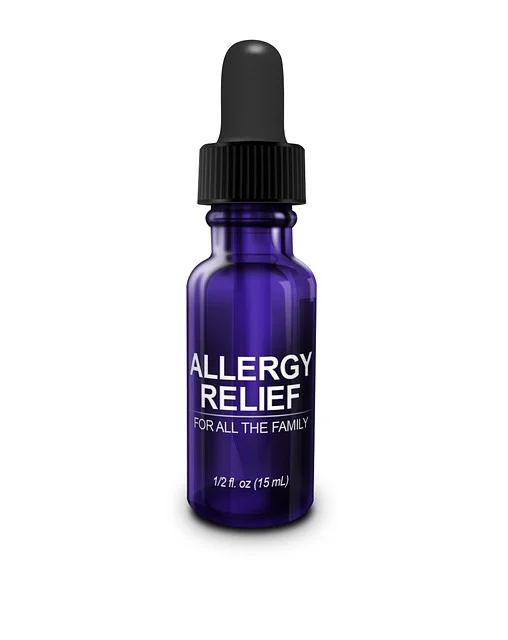Allergies are a common yet complex immune response triggered by exposure to allergens, substances that provoke an abnormal reaction in sensitive individuals. This article explores the causes, symptoms, and treatments of allergies, shedding light on this prevalent health issue that affects millions worldwide.

1. Understanding Allergies
Allergies occur when the immune system mistakenly identifies harmless substances as threats, leading to an exaggerated immune response. Common allergens include pollen, dust mites, pet dander, mold spores, insect stings, certain foods (e.g., peanuts, shellfish), and medications. When exposed to these allergens, susceptible individuals experience symptoms ranging from mild discomfort to severe reactions.
2. Types of Allergic Reactions
Allergic reactions vary in severity and can affect different parts of the body:
- Respiratory Allergies: Common respiratory allergies include allergic rhinitis (hay fever), characterized by sneezing, nasal congestion, runny nose, and itchy eyes. Asthma, triggered by allergens and irritants, causes wheezing, coughing, chest tightness, and difficulty breathing.
- Skin Allergies: Contact dermatitis results from skin contact with allergens or irritants, causing redness, itching, swelling, and sometimes blisters.
- Food Allergies: Food allergies can cause symptoms ranging from mild itching or swelling to severe anaphylaxis, a life-threatening reaction that requires immediate medical attention.
- Insect Sting Allergies: Some people develop allergic reactions to insect stings, such as bees or wasps, which can lead to localized swelling or severe systemic reactions.
3. Causes of Allergies
The exact causes of allergies are complex and involve genetic predisposition and environmental factors:
- Genetic Factors: Individuals with a family history of allergies are more likely to develop allergic conditions.
- Environmental Factors: Exposure to allergens early in life, air pollution, changes in diet, and hygiene hypothesis (suggesting a lack of early childhood exposure to germs may increase susceptibility to allergies) influence allergy development.
4. Symptoms of Allergies
Allergy symptoms can vary depending on the type of allergen and the individual’s sensitivity:
- Respiratory Symptoms: Sneezing, nasal congestion, runny nose, itchy or watery eyes, coughing, and wheezing.
- Skin Symptoms: Redness, itching, swelling, rash, hives, or eczema.
- Digestive Symptoms: Abdominal pain, diarrhea, nausea, or vomiting (common in food allergies).
- Severe Symptoms: Anaphylaxis symptoms include difficulty breathing, swelling of the throat or tongue, rapid heartbeat, dizziness, and loss of consciousness. Anaphylaxis requires immediate emergency medical attention.
5. Diagnosis
Diagnosing allergies involves:
- Medical History: Detailed history of symptoms and potential allergen exposure.
- Physical Examination: Examination of symptoms and potential triggers.
- Allergy Testing: Skin prick tests, blood tests (specific IgE tests), or oral food challenges to identify specific allergens triggering reactions.

6. Treatment Options
Treatment aims to relieve symptoms and prevent allergic reactions:
- Allergen Avoidance: Minimizing exposure to allergens through environmental controls (e.g., air filters, allergen-proof bedding), dietary changes (e.g., avoiding specific foods), and insect sting precautions (e.g., wearing protective clothing).
- Medications: Antihistamines, decongestants, nasal sprays, eye drops, and asthma medications alleviate symptoms.
- Immunotherapy: Allergy shots (subcutaneous immunotherapy) or oral tablets (sublingual immunotherapy) gradually desensitize the immune system to specific allergens, reducing allergic reactions over time.
7. Lifestyle Management
Managing allergies involves adopting lifestyle strategies to minimize triggers and promote overall well-being:
- Education and Awareness: Understanding allergy triggers and symptoms helps individuals and families manage allergies effectively.
- Emergency Plan: Individuals with severe allergies should carry an epinephrine auto-injector (e.g., EpiPen) and have an emergency action plan in case of anaphylaxis.
- Support Networks: Joining support groups or seeking guidance from allergists and healthcare providers helps individuals cope with allergies and make informed decisions.
8. Prevention Strategies
Preventing allergies involves:
- Early Introduction of Allergenic Foods: Introducing potential allergens to infants at the right time under medical supervision may reduce the risk of food allergies.
- Reducing Exposure: Minimizing exposure to known allergens, especially for individuals prone to severe reactions.
- Environmental Controls: Implementing measures to reduce indoor allergens (e.g., dust mites, mold) and outdoor allergens (e.g., pollen) can alleviate symptoms.

9. Research and Future Directions
Ongoing research aims to:
- Identify New Treatments: Investigating novel therapies, including biologics and gene therapies, to treat severe allergies.
- Understanding Immunological Mechanisms: Studying immune system responses to develop targeted interventions and personalized treatment approaches.
- Precision Medicine: Applying personalized medicine principles to allergy diagnosis and treatment based on individual genetic and immune profiles.
10. Conclusion
In conclusion, allergies are a prevalent health concern impacting millions worldwide. Understanding the causes, symptoms, and treatment options empowers individuals to manage allergies effectively and improve their quality of life. Advances in allergy research and personalized medicine offer hope for more targeted therapies and prevention strategies, paving the way for a future where allergies are better understood and managed globally.

